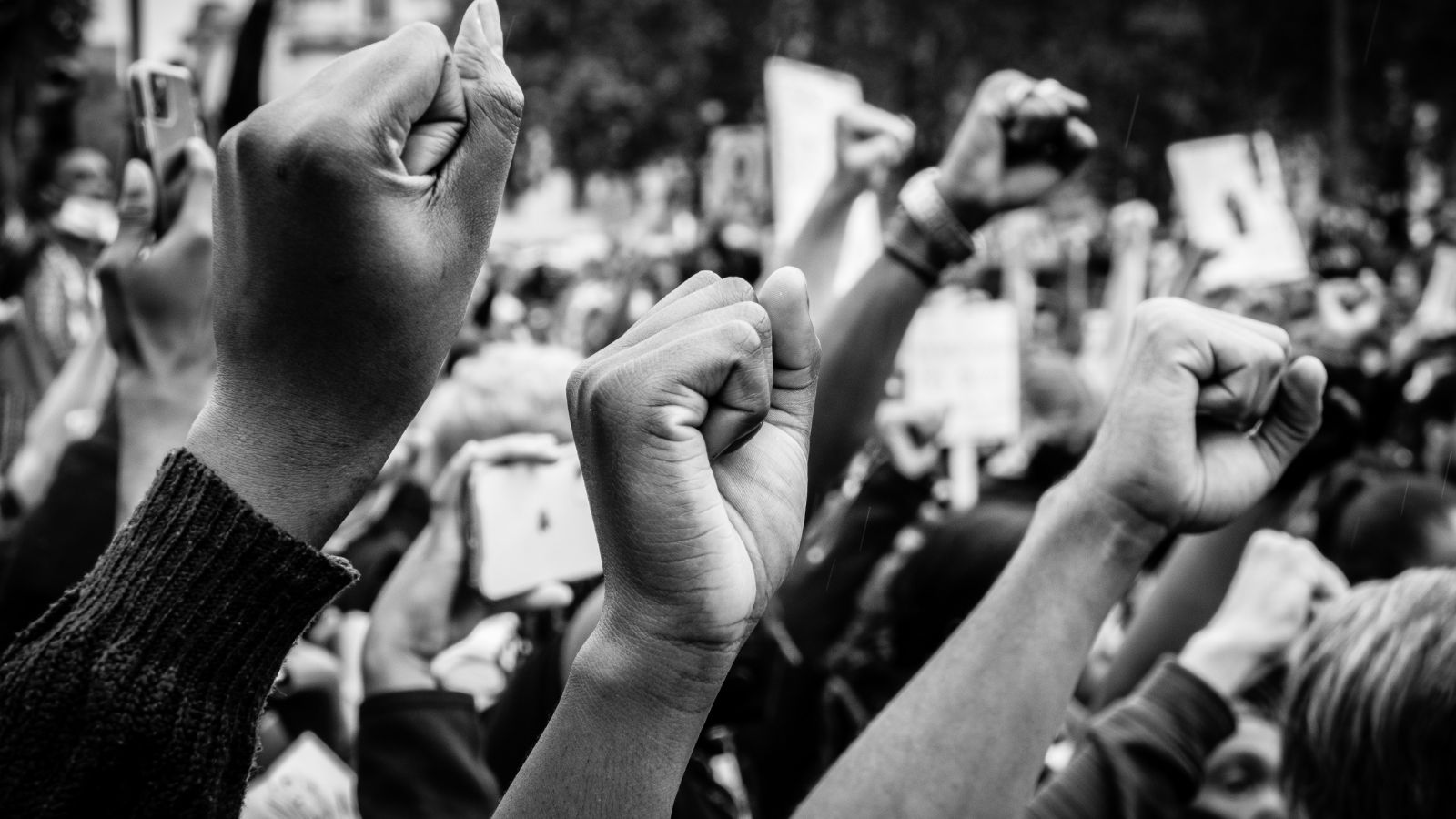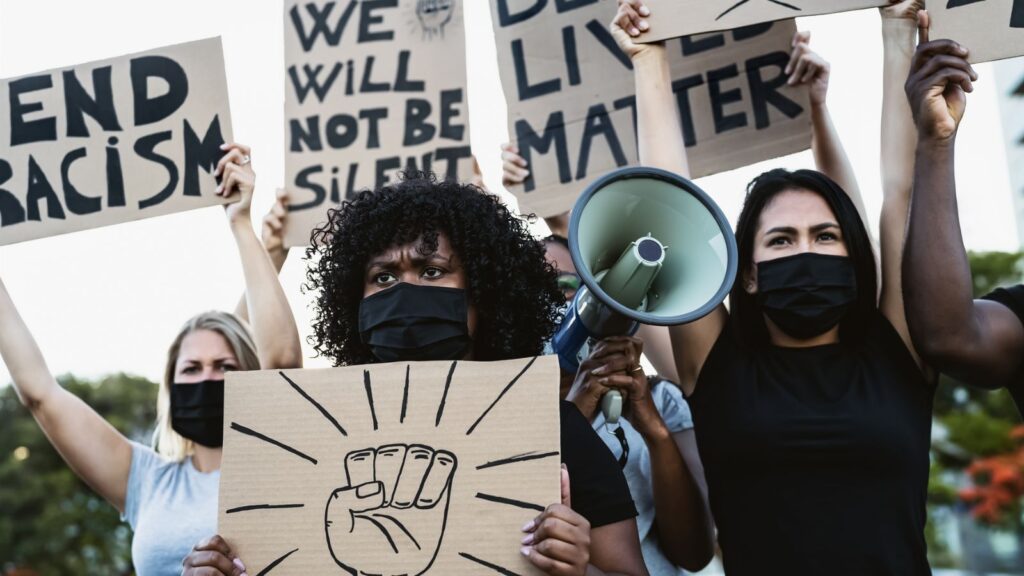Racial inequality isn’t always about big, dramatic events; it’s often reinforced by small, everyday actions that many of us don’t even realise we’re doing. Our daily choices can contribute to a system that benefits some while disadvantaging others. Here are 18 ways your everyday actions might perpetuate racial inequality.
Making Assumptions Based on Stereotypes

According to LinkedIn, “communication can be hindered by assumptions and stereotypes that we may have about others,” and we often make snap judgments about people based on someone’s profession, their race or expecting them to act in a certain way. And these stereotypes are harmful, as they limit opportunities and reinforce negative images of racial groups.
Not Speaking Up Against Racist Jokes

When we hear racist jokes or comments and choose to stay silent, we implicitly condone such behaviour. This silence allows racism to persist in social circles and workplaces, whereas speaking up against racist remarks, even when it’s uncomfortable, is crucial.
Supporting Businesses That Lack Diversity

Where you spend your money matters, and supporting businesses that do not prioritise diversity or that engage in discriminatory practices perpetuates racial inequality. Make a conscious effort to support businesses owned by people of colour and those that actively promote diversity and inclusion.
Cultural Appropriation

If you’re wearing or adopting elements of a culture that is not your own, especially without understanding or respecting its significance, it can be deeply offensive and perpetuate racial inequality. This includes fashion, hairstyles, or even using cultural symbols as decorations.
Ignoring Your Own Privilege

Many people benefit from privileges they might not even be aware of, simply due to their race, and ignoring this privilege allows racial inequality to continue unchallenged. Acknowledge the advantages you might have and use them to advocate for change, and this can involve educating others and supporting policies that promote equality.
Not Diversifying Your Social Circle

If all your friends and colleagues are from the same racial background as you, you might be missing out on important perspectives and reinforcing racial divides. Making an effort to diversify your social circle can help you better understand different experiences and viewpoints. This isn’t about tokenism; it’s about genuine relationships and learning from each other.
Failing to Educate Yourself About Racism

Relying on people of colour to educate you about racism can be burdensome and unfair, so you should take the initiative to learn on your own. There are countless books, articles, documentaries, and courses available that can provide valuable insights into the history and impact of racism.
Microaggressions

Microaggressions are subtle, often unintentional, comments or actions that can be hurtful and perpetuate racial stereotypes, and these can include things like complimenting someone on their English when it’s their first language or making assumptions about their background. Be mindful of the impact your words and actions can have.
Failing to Hold Institutions Accountable

Many institutions, including schools and workplaces, have policies or practices that contribute to racial inequality. Failing to hold these institutions accountable allows these practices to continue, so speak up when you see unfair treatment and support initiatives that promote diversity and inclusion.
Assuming All Racism Is Overt

Racism isn’t always explicit; often, it’s subtle and embedded in everyday interactions and systems. Assuming that racism only exists in its most blatant forms ignores the more insidious ways it manifests, while understanding that racism can be subtle means you can better recognise and challenge it in all its forms.
Not Supporting Anti-Racism Movements

One thing working tirelessly to challenge and dismantle racial inequality are anti-racism movements, and by not supporting these movements, you miss an opportunity to contribute to meaningful change. Support can come in many forms, whether it’s participating in protests or donating to relevant organisations.
Using Colour-Blind Ideology

Saying “I don’t see colour” might seem like a way to promote equality, but it often dismisses the real and lived experiences of people of colour. Colour-blind ideology ignores the impact of systemic racism and can invalidate the struggles faced by marginalised communities.
Unconscious Bias in Decision Making

Whether you’re aware of it or not, unconscious biases can influence your decisions, from hiring practices to everyday interactions. These biases can perpetuate racial inequality by favouring certain groups over others, so you should take steps to become aware of your biases and actively work to counteract them.
Tokenism

Including people of colour in your workplace or social circles solely to appear diverse, without valuing their contributions, is tokenism. This practice reinforces racial inequality by reducing individuals to their race rather than recognising their unique skills and perspectives, and it’s not genuine inclusion.
Avoiding Difficult Conversations

We know that conversations about race can be uncomfortable, but avoiding them allows racial inequality to go unchallenged. Engage in these discussions with an open mind and a willingness to learn, as well as being ready to listen to the experiences of people of colour.
Judging Activism

Criticising the way people of colour advocate for their rights can undermine their efforts and perpetuate racial inequality; you should understand that activism takes many forms, and what might seem uncomfortable to you may be a necessary means of challenging injustice.
Lack of Representation in Media

The media you consume has a significant impact on your perceptions of race, too, so when people of colour are underrepresented or stereotypically portrayed in media, it reinforces racial inequality. Support diverse media by consuming and promoting content created by people of colour to provide a broader range of perspectives.
Passive Allyship

And lastly, if you’re being a passive ally—supporting racial equality in theory but not in action—it does little to challenge systemic racism. Active allyship involves taking concrete steps to support people of colour, such as calling out racism when you see it, educating yourself and others, and supporting policies that promote equality.







